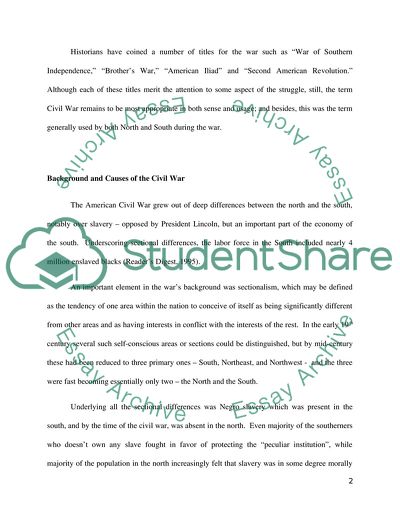Cite this document
(Causes of the Civil War Coursework Example | Topics and Well Written Essays - 1750 words, n.d.)
Causes of the Civil War Coursework Example | Topics and Well Written Essays - 1750 words. https://studentshare.org/military/1545995-causes-of-the-civil-war
Causes of the Civil War Coursework Example | Topics and Well Written Essays - 1750 words. https://studentshare.org/military/1545995-causes-of-the-civil-war
(Causes of the Civil War Coursework Example | Topics and Well Written Essays - 1750 Words)
Causes of the Civil War Coursework Example | Topics and Well Written Essays - 1750 Words. https://studentshare.org/military/1545995-causes-of-the-civil-war.
Causes of the Civil War Coursework Example | Topics and Well Written Essays - 1750 Words. https://studentshare.org/military/1545995-causes-of-the-civil-war.
“Causes of the Civil War Coursework Example | Topics and Well Written Essays - 1750 Words”. https://studentshare.org/military/1545995-causes-of-the-civil-war.


